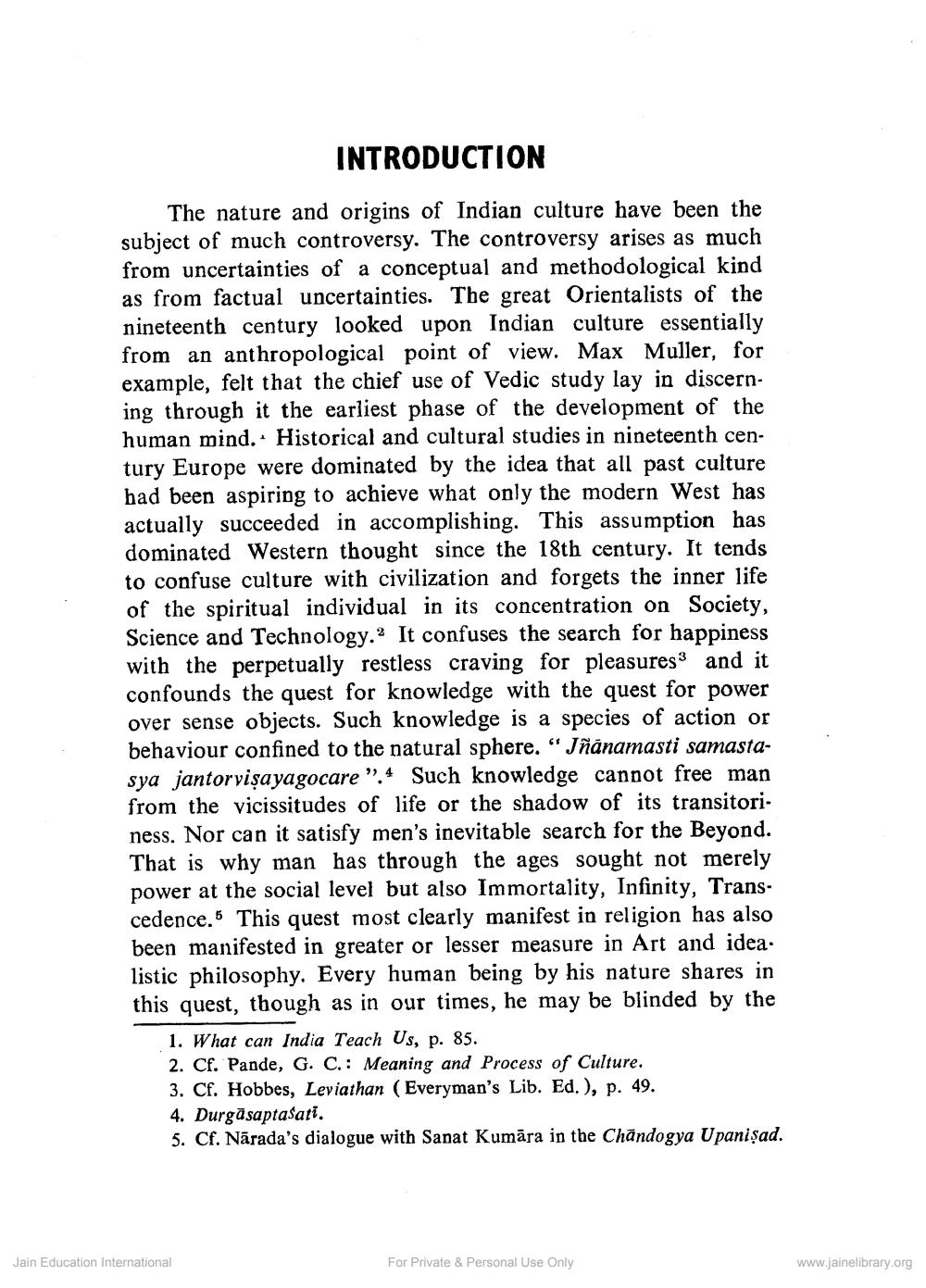Book Title: Sramana Tradation Author(s): G C Pandey Publisher: L D Indology Ahmedabad View full book textPage 6
________________ INTRODUCTION The nature and origins of Indian culture have been the subject of much controversy. The controversy arises as much from uncertainties of a conceptual and methodological kind as from factual uncertainties. The great Orientalists of the nineteenth century looked upon Indian culture essentially from an anthropological point of view. Max Muller, for example, felt that the chief use of Vedic study lay in discerning through it the earliest phase of the development of the human mind. - Historical and cultural studies in nineteenth century Europe were dominated by the idea that all past culture had been aspiring to achieve what only the modern West has actually succeeded in accomplishing. This assumption has dominated Western thought since the 18th century. It tends to confuse culture with civilization and forgets the inner life of the spiritual individual in its concentration on Society, Science and Technology.” It confuses the search for happiness with the perpetually restless craving for pleasures and it confounds the quest for knowledge with the quest for power over sense objects. Such knowledge is a species of action or behaviour confined to the natural sphere. “Jñānamasti samastasya jantorvisayagocare”.4 Such knowledge cannot free man from the vicissitudes of life or the shadow of its transitoriness. Nor can it satisfy men's inevitable search for the Beyond. That is why man has through the ages sought not merely power at the social level but also Immortality, Infinity, Transcedence.5 This quest most clearly manifest in religion has also been manifested in greater or lesser measure in Art and idea. listic philosophy, Every human being by his nature shares in this quest, though as in our times, he may be blinded by the 1. What can India Teach Us, p. 85. 2. Cf. Pande, G. C.: Meaning and Process of Culture. 3. Cf. Hobbes, Leviathan (Everyman's Lib. Ed.), p. 49. 4. Durgāsaptasati. 5. Cf. Nārada's dialogue with Sanat Kumāra in the Chandogya Upanişad. Jain Education International For Private & Personal Use Only www.jainelibrary.orgPage Navigation
1 ... 4 5 6 7 8 9 10 11 12 13 14 15 16 17 18 19 20 21 22 23 24 25 26 27 28 29 30 31 32 33 34 35 36 37 38 39 40 41 42 43 44 45 46 47 48 49 50 51 52 53 54 55 56 57 58 59 60 61 62 ... 90
